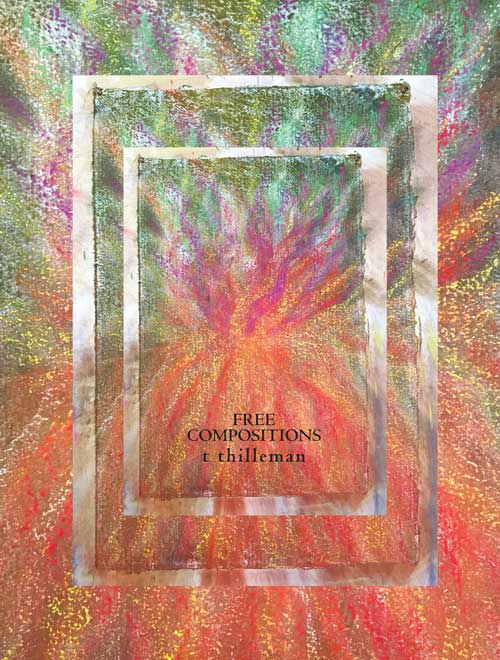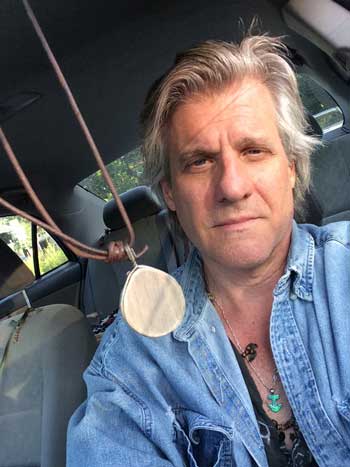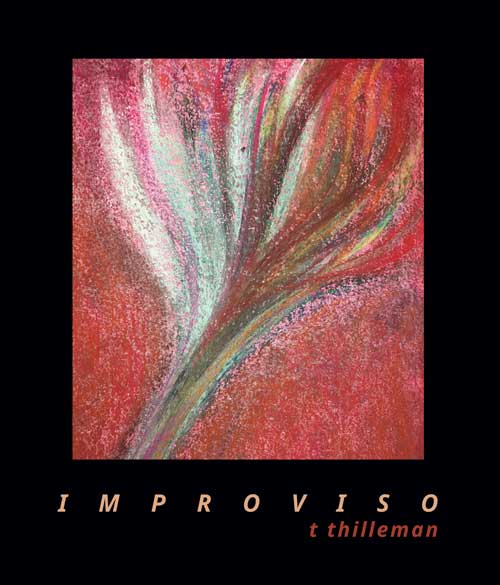
 La
La vender Ink author (Free Compositions and the newly-released Improviso) and prolific publisher and poetry raconteur t. thilleman is featured in the current issue of Brooklyn Rail. In the interview he discusses Free Compositions and a wide range of other topics, including the new documentary film Poetry New York, releasing this month at the Chain NYC Film Festival, which features Thilleman reminiscing about, among other things, the may readings he sponsored in NYC in the 1990s.
vender Ink author (Free Compositions and the newly-released Improviso) and prolific publisher and poetry raconteur t. thilleman is featured in the current issue of Brooklyn Rail. In the interview he discusses Free Compositions and a wide range of other topics, including the new documentary film Poetry New York, releasing this month at the Chain NYC Film Festival, which features Thilleman reminiscing about, among other things, the may readings he sponsored in NYC in the 1990s.
Here are two snippets from the interview:
Andrew Mossin (Rail): You were, as you’ve told me, solidly below 14th Street in those days, whereas for me most of what I knew outside of work was located above 72nd on the West Side. So, while I was hanging out uptown in bars like Dublin House, you were downtown involved in that evolving scene of poetry readings, performances and happenings of one kind and another. It’s this history that I see partly reflected in the new film that you’re in directed by Patrick Pfister, Poetry, New York. Could you talk about this film in terms of what the film is trying to do, the geography of that film, and some of its historic back-looking as well as forward-looking aspects? I’m especially intrigued by the trailer that features a rain-soaked downtown street (it looks like Canal but I can’t be sure) and you walking with an umbrella through it and the accompanying voiceover, “Tod Thilleman is on a mission.”
t thilleman: Part of that “mission” is in my new book, Free Compositions. There’s a Nathaniel Mackey quote from Djbot Baghostus’s Run, one of the novels in his ongoing series of epistolary fictions, and it ends with the line, “Automatic alto had now come full circle, clearly come to be host of a circuitous muse.” That serves as the epigraph to the book’s third and final section, “I Talk With the Spirits,” which is all about the jazz musician Rahsaan Roland Kirk, who played three instruments at once.
…
Rail: Shifting gears here, I’m wondering what connections you see between your intent and intense period of doing readings and running a reading series and your recent work in Free Compositions. This work, as much of your recent poetry does, focuses heavily on music, the aspect of melos that we find in poetry but of course in composers such as Schoenberg and Mahler, two key figures in this work, becomes even more important and actualized through the interrelation of the musical score and its performance.
thilleman: There’s the musical side of what I’m doing here, coming out of Mahler, but what was happening at the time, in Vienna around the turn of the twentieth century, was that everyone is wanting to do a cabaret thing, influenced by French Cabaret. And they want to do these very popular songs. There’s a contingent, though, that wants to raise song up to the level of high art. “Can it be done?” they’re asking. There’s a famous novel about it: Stilpe (1897), published by Otto Julius Bierbaum, which no one really knows or remembers these days but is important because it inspired the first German cabaret in Berlin in 1901. The novel includes all this dramatic play around cabaret, but Schoenberg was influenced by the space in the cabaret, in that very intimate setting but orchestrated it like a little mini opera.

You must be logged in to post a comment.